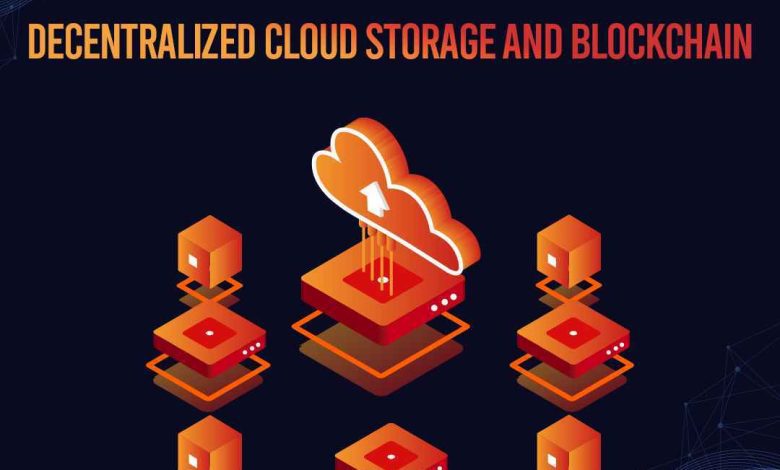
Some popular social media platforms like Instagram, Facebook, and almost all other social media tech giants are centralized. We hear about their censorship, privacy breach, or data leaks almost daily. Many users who are aware of this danger are switching to decentralized alternatives. Many people believe that decentralized engines are essential for the community, and social media developers should adopt them. There exist few unpopular decentralized social networks. Developers are trying to develop more and better decentralized social media platforms for the people. Decentralized social media networks, unlike other social media platforms, pride themselves on the lack of censorship. Most of them are immune to blocking and censorship.
In decentralized networks like Qitchain, users own data and not the company. They put the users first and foremost. Some of these networks also make money and share with users. They focus on newsfeeds, groups, blogs, and general discovery features. They mostly operate on open-source servers and use anti-abuse tools. Qitcoin uses peer-to-peer network systems and let us monetize our own content. Above all, decentralized networks try to match quality content with the people interested in it.
Opportunity for Blockchain
The word “blockchain” refers to a database that stores data for a decentralized network. Its most well-known usage is on cryptocurrencies. The Blockchain does not restrict itself to financial applications only. It can be expanded to include other sorts of applications and systems and create a decentralized network. Blockchain Social Media are decentralized platforms. The main advantage of such media is that they provide end-to-end encryption for all interactions. It gives users more privacy and control over their data.
Today, there are over 4 billion Social Media users, and this figure continues to rise year after year, posing a severe threat to privacy. Decentralization of social networks has been viewed as a significant chance to address major privacy concerns, fake news, censorship, and other challenges in recent years. Decentralized Social Media platforms that employ blockchain technology are a tool to deliver rewarding techniques.
Nonetheless, the true value of incorporating blockchain technology into real-world social sites is undiscovered.
In social media platforms, privacy and data security are major concerns. QTC is based on decentralized blockchain technology that safeguards users’ content by encrypting it. Thanks to its distributed ledger and decentralized architecture. For security, it uses end-to-end encryption. An issue arises when metadata sends with texts. What happens is that it gives third parties a chance to steal the user’s personal information. Blockchain-based Qitchain provides more benefits than simple privacy and security. They help users obtain control over their own content.
As a result, Qitcoin network helps us to learn that a decentralized approach to blockchain technology in social networking assures anonymity. Also, it facilitates e-commerce, smart apps, crowd-funding, and contracts.
Decentralization Takes Social Media to the Next Level
Most of the current social networking systems are centralized. The companies that provide the services have exclusive control of all of the users’ data. Similarly, while using social networking sites, individuals must agree to the terms and conditions of those sites even if those policies may include the use of personal data for targeted advertising. For instance, Beacon broadcasted their users’ activity stories on their friends’ news feeds, which offended them [Malik 2007].
With decentralized control, however, no single service has exclusive access to data. Qitchain’s blockchain-based decentralized system gives users back control over their data. In particular, in the areas listed below:
Moreover: Decentralized Cloud Storage
Ownership:
Users have complete control over the data as they get saved on a trusted server.
Privacy:
Users determine who they want to see their information and what restrictions they want to place on it.
Dissemination:
While considering the preferences of the individuals, information has disseminated.
Like Qitchain if developers start developing social media accounts on decentralized technology or they update already existing accounts to the decentralized networks then it shall solve many privacy issues of people. So, there are various privacy issues for users using popular social media sites. A decentralized approach can cater to this only. Some of the following:
Personal Wall:
A Facebook wall is a location where you can accept information from others. It’s semi-private as one should control who can have access to write and view the information in this area. Within the decentralized social networking architecture, users can select a server they trust to host the wall application. Also, they can set access control restrictions that restrict particular users from performing specific tasks.
Newsfeed:
“News Feed” is one of Facebook’s most contentious features, raising privacy concerns in social media. Many users say that the tool exposes too much of their social networking activity. On the other hand, decentralized search engine platform, users will have more control over their own data, including their activity log.
Photos:
Another fascinating application on existing social networking platforms is tagging a person in pictures. When someone tags himself in a photo, the user’s activities/news feed may automatically update. In a decentralized setting, users can have more control over the news included in their feeds.
Conclusion
Existing social networking sites have a lot of exciting features, but they also have the potential to cause issues with privacy, information accountability, and information ownership. Decentralized social networks have the potential to create a better environment in which users can exercise greater authority over the broadcast of their data, privacy, as well as ownership. Qitchain has already adopted this technology and made it more private and secure.






